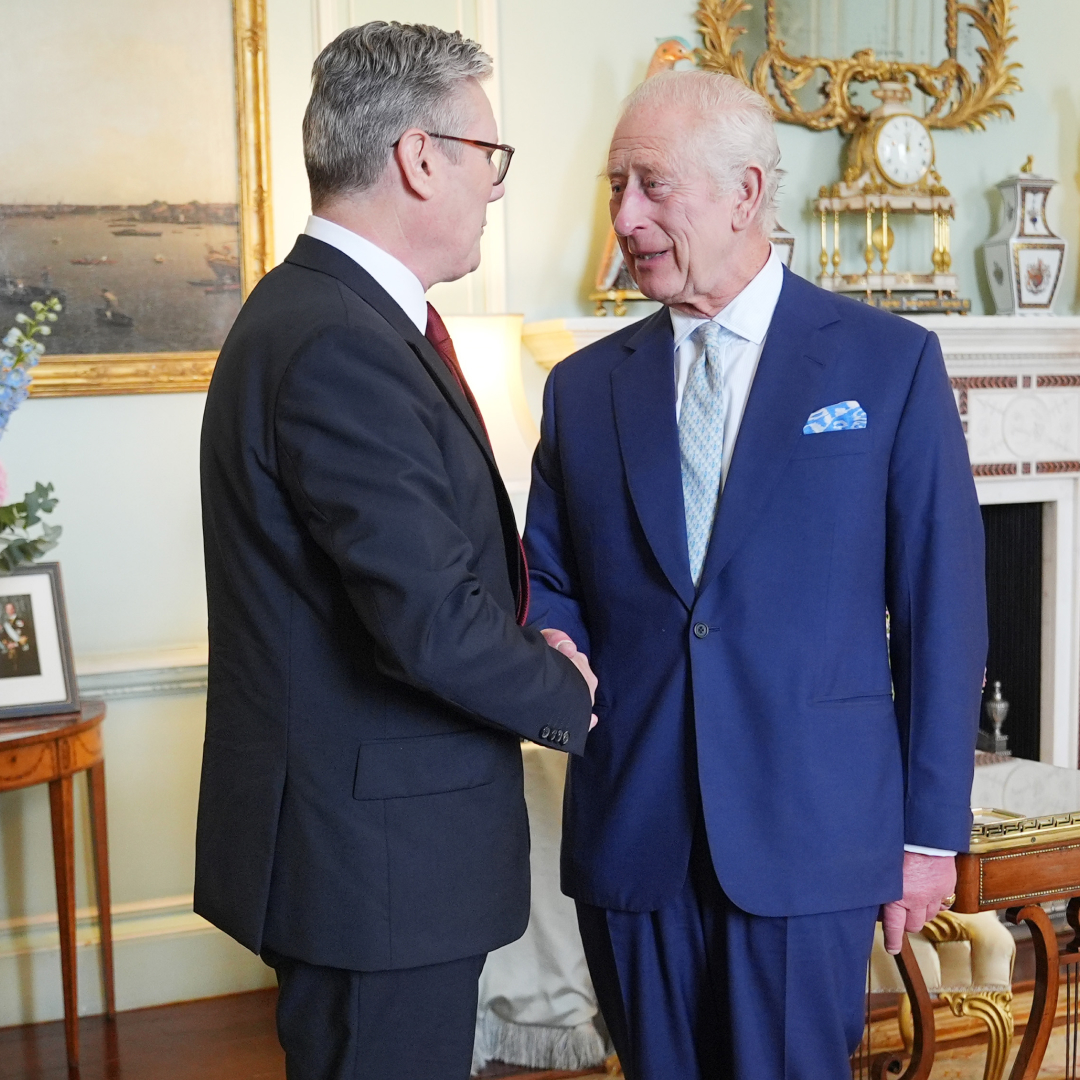
For the third time in his less than two-year reign, King Charles has appointed a new U.K. prime minister.
On Friday, July 5, the monarch welcomed Sir Keir Starmer, the leader of the U.K. Labour Party, to become Prime Minister and form a new government following the party's landslide victory in the country's general election.
While members of the royal family do not vote in U.K. elections nor do they publicly voice their personal political beliefs, according to the U.K. Parliament it is tradition for the monarch to meet with the outgoing prime minister before formally meeting the incoming leader of the government.
During the short period between meetings, specific executive powers are bestowed upon the monarch—in this case the King—who then invites the new prime minster to lead the government.
To officially appoint the new prime minister, the King simply asks "the new prime minister to form an administration," the Parliament's website explains. It is then tradition for the new prime minister to simply respond:
"Yes."
The royal family posted a photo of the meeting between King Charles and Sir Keir Starmer on Instagram, showing the pair shaking hands.
"The King received in Audience The Rt Hon Sir Keir Starmer MP today and requested him to form a new Administration," the monarchy captioned the post. "Sir Keir accepted His Majesty’s offer and was appointed Prime Minister and First Lord of the Treasury."
While the monarch can technically dismiss a prime minister that has been appointed by the people, that power has not been used since 1834 and is "regarded as having undermined the sovereign," according to the Cabinet Manuel.
"In modern times the convention has been that the sovereign should not be drawn into party politics," the manuel explains, meaning the monarch acts as an apolitical figure that operates more out of tradition.

The monarchy previously announced that it would be taking a step back from royal duties absent from the public eye while the U.K. was in the middle of the general election, in part to maintain the tradition of not acting in a political matter or appearing to influence an election.
On July 4, citizens of the United Kingdom voted on all 650 members of the House of Commons and elected the Labour Party to be the majority party that will now lead the government.
While it's technically not illegal for a member of the monarchy to cast a ballot, the royal family has not historically voted in any election. In fact, Meghan Markle made royal family history when she voted in the 2020 U.S. presidential election.
"Meghan was an American long before she was a royal," a source told Page Six at the time. "She wouldn’t miss voting in this election no matter where she was living."







